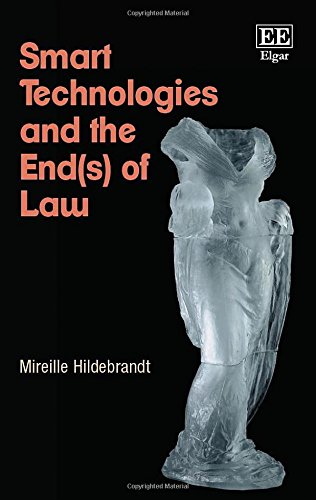

Most ebook files are in PDF format, so you can easily read them using various software such as Foxit Reader or directly on the Google Chrome browser.
Some ebook files are released by publishers in other formats such as .awz, .mobi, .epub, .fb2, etc. You may need to install specific software to read these formats on mobile/PC, such as Calibre.
Please read the tutorial at this link: https://ebookbell.com/faq
We offer FREE conversion to the popular formats you request; however, this may take some time. Therefore, right after payment, please email us, and we will try to provide the service as quickly as possible.
For some exceptional file formats or broken links (if any), please refrain from opening any disputes. Instead, email us first, and we will try to assist within a maximum of 6 hours.
EbookBell Team

4.8
54 reviews’Many contemporary authors are wrestling with two technological developments which will change our society beyond recognition: big data analytics and smart technologies. Few though understand, or can explain, these developments in the way Mireille Hildebrandt does. In ambitiously bringing together legal theory, psychology, social ethnology and of course smart agency and ambient intelligence, Hildebrandt gives the most complete study of these vitally important developments. Books are often described as ’must read’ though few actually are; this one genuinely is.’
- Andrew Murray, London School of Economics, UK
This timely book tells the story of the smart technologies that reconstruct our world, by provoking their most salient functionality: the prediction and preemption of our day-to-day activities, preferences, health and credit risks, criminal intent and spending capacity.
Mireille Hildebrandt claims that we are in transit between an information society and a data-driven society, which has far reaching consequences for the world we depend on. She highlights how the pervasive employment of machine-learning technologies that inform so-called ’data-driven agency’ threaten privacy, identity, autonomy, non-discrimination, due process and the presumption of innocence. The author argues how smart technologies undermine, reconfigure and overrule the ends of the law in a constitutional democracy, jeopardizing law as an instrument of justice, legal certainty and the public good. Nevertheless, the book calls on lawyers, computer scientists and civil society not to reject smart technologies, explaining how further engaging these technologies may help to reinvent the effective protection of the Rule of Law.
Academics and researchers interested in the philosophy of law and technology will find this book both discerning and relevant. Practitioners and policy makers in the areas of law, computer science and engineering will benefit from the insight into smart technologies and their impact today.